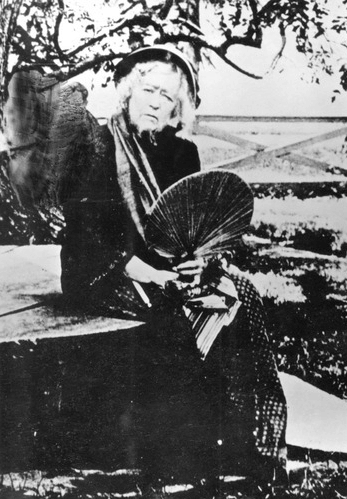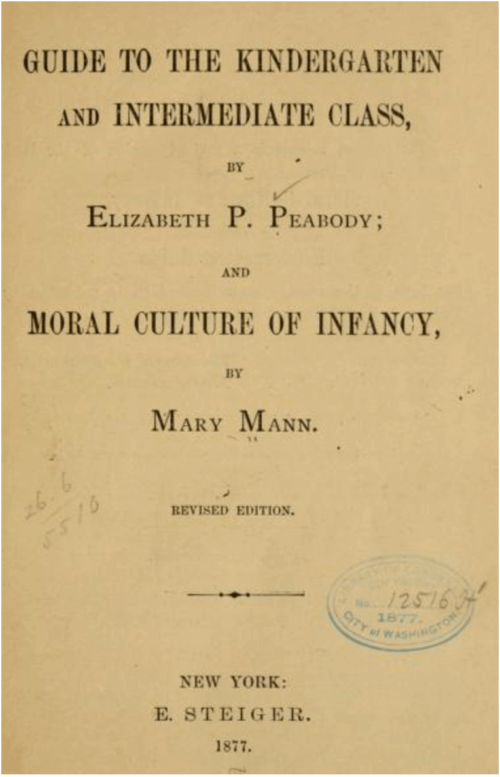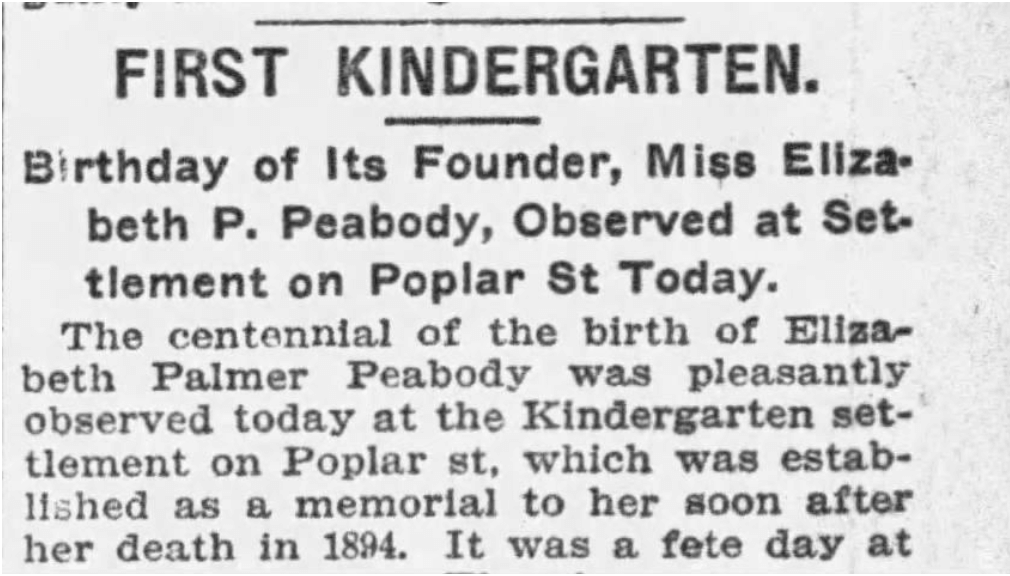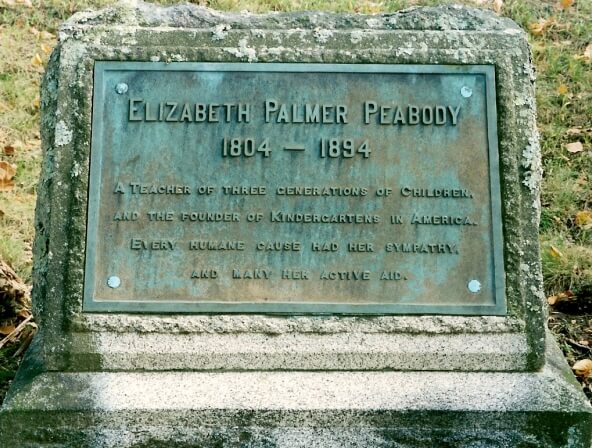Elizabeth Peabody’s Kindergarten
Elizabeth Palmer Peabody, educator, publisher, reformer, and namesake of the West End’s Elizabeth Peabody House, was one of the most important figures in Boston’s 19th-century intellectual community. Of all her achievements, perhaps her most impactful was the introduction of English-language kindergartens to the United States.
The 19th-Century German reformer and educator, Friedrich Fröebel, opened the first kindergarten in Blankenburg, Germany in 1837. He built upon the ideas of Johann Heinrich Pestalozzi, a Swiss follower of French philosopher Jean-Jacques Rousseau who believed in the inherent goodness of children. During the 1830s and 1840s, Fröebel made a case for the importance of music, nature study, stories, play, as well as symbolic ideas like children sitting together in a circle. Fröebel founded the Play and Activity Institute, and coined the phrase “kindergarten,” which translates to “garden of children.” He also created a number of educational toys and believed in the value of free play in childhood learning.
Following Fröebel’s work, Margarethe Schurz founded a German-language kindergarten in Watertown, Wisconsin in 1856. After Elizabeth Peabody closed her book shop at 13 West Street and returned to her work in education, she met the Schurz family and was impressed with the kindergarten movement. Peabody studied Fröebel’s methods and used her experience in education and launching schools to open an English-language kindergarten in Boston. After finding a suitable location at 15 Pinckney Street on the North Slope of Beacon Hill, she opened the first English-language kindergarten in the United States in 1860. Later In 1861, she moved the kindergarten to Winter Street.
Peabody’s kindergarten rooms were built at a child’s scale with moveable furniture and areas for singing, playing, music, and movement. She firmly believed that a “kindergarten pupil should be encouraged to grow organically, both physically, through play, and spiritually, through music and art.” The Winter St. kindergarten included daily instruction in French and charged tuition of up to $50.00 for a 40 week term.
Together with her sister Mary, the widow of educational reformer Horace Mann, Peabody published the two-part book, Guide to the Kindergarten and Intermediate Class and Moral Culture of Infancy and Kindergarten Guide in 1863. Further influenced by Mann’s belief that public education could create citizens who would celebrate democracy and work to eradicate social injustices, Peabody became especially interested in the possibilities of universal free public kindergarten in less advantaged neighborhoods. In 1867 Peabody traveled to Europe to tour kindergartens there and to further research Fröbel’s teachings. By 1870 she was a strong advocate for free early childhood education in American cities.
A 1872 Boston Globe article reported,
“The word kindergarten, unknown to the language ten years ago, has now become so thoroughly anglicized as to be intelligible in the most secluded portions of the land…In this country there has been no more enthusiastic disciple of Fröebel than Miss Elizabeth P. Peabody…”
Peabody continued to write about educational practices and spent the next several years supporting classrooms, training teachers, giving talks, and writing numerous articles and books on kindergarten theory and practices. As the effects of industrialization and urbanization on the youngest and poorest citizens became more apparent, she pushed even harder for tuition-free kindergarten. Though through her work the popularity of kindergarten grew around the country, Boston had only one public kindergarten class in 1879 that was ultimately shut down on educational and administrative grounds. While private and parochial kindergartens operated successfully, it wouldn’t be until 1897 that Boston public schools officially added kindergarten classes.
Peabody continued promoting child-centered education until her death in 1894. Two years later, The Elizabeth Peabody House (EPH) opened on Chambers Street as a kindergarten for the West End community and a tribute to the founder of the American kindergarten movement. EPH expanded the kindergarten when it later moved to Poplar St. In 1899, with district grammar school buildings overcrowded, the city opened another West End public kindergarten class in St. Andrew’s parish house on Chambers St. Elizabeth Peabody’s gravestone on Writer’s Ridge in Concord reads: “A Teacher of three generations of Children, and the founder of Kindergarten in America. Every humane cause had her sympathy, and many her active aid.”
Article by Janelle Smart Fisher, edited by Bob Potenza.
Sources: Lazerson, Marvin. The Burden of Urban Education: Public Schools in Massachusetts,1870-1915.Harvard University Press, 1971; The Boston Globe October 29, 1872; The Boston Globe May 26, 1878; The Boston Globe March 26, 1879; The Boston Globe May 16, 1904; The West End Museum; The Social Welfare History Project https://socialwelfare.library.vcu.edu/












